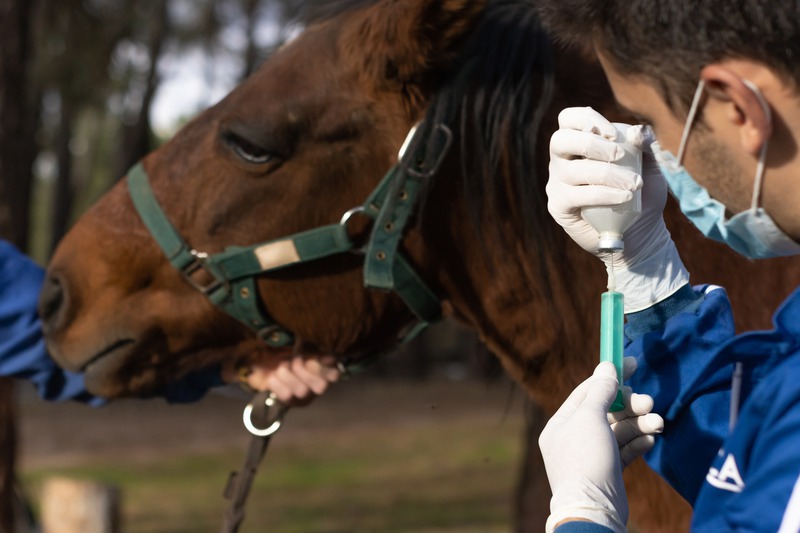When we picture horses, we usually see them running free in large fields or displaying their might in sports. These beautiful, strong creatures fascinate us, but they can get hurt, mainly with their muscles and bones. Equine orthopedic surgeries help a lot here. They help horses heal and perform well again, improving how they live. Let’s explore the importance of these operations and their role in taking care of horses’ health.
What Are Equine Orthopedic Issues
Horses are incredible creatures of great physical prowess, but their active lifestyles can lead to various orthopedic challenges. From racing and jumping to even the wear and tear of daily activities, the stress exerted on their musculoskeletal system can result in conditions such as arthritis, tendonitis, fractures, and more. Recognizing these issues early and tackling them head-on is tantamount to maintaining the horse’s well-being and functionality.
Common Orthopedic Problems in Horses
-
Osteoarthritis – Degeneration of joint cartilage and the underlying bone, most common in older horses.
-
Tendon and Ligament Injuries – Strains or tears due to overstretching during high-intensity activities.
-
Fractures – Often the result of accidents or missteps, these require immediate attention.
-
Developmental Orthopedic Disease – A term for various growth-related disorders in foals and young horses.
Detecting and Diagnosing Orthopedic Conditions
Spotting the signs of orthopedic distress in horses often falls to vigilant owners and trainers. Limping, swelling, or a sudden reluctance to move could all be indicators that something is amiss. Once an issue is suspected, owners may turn to a large animal vet in Meadow Vista, CA, who can precisely diagnose the condition using a combination of clinical examinations, imaging modalities like X-rays, MRIs, or CT scans, and sometimes explorative surgery.
The Role of Equine Orthopedic Surgeries
When faced with a significant orthopedic issue, equine orthopedic surgeries provide the corrective intervention that can make a world of difference. Here are a few key reasons these surgeries are indispensable:
Restoring Mobility and Function
Orthopedic surgeries aim to rectify problems that may be impeding a horse’s movement. Through procedures like arthroscopy for joints, tendon repair, or bone fracture fixation, horses can regain their mobility and return to their normal routines or competitive careers.
Alleviating Pain
Orthopedic conditions often come with a lot of pain and discomfort. Surgeries can significantly reduce pain by addressing the root cause, such as repairing a torn ligament or cleaning up a joint affected by arthritis. This pain reduction goes a long way in improving the horse’s overall comfort and disposition.
Preventing Further Damage
The nature of some orthopedic injuries is such that without surgery, they’re likely to exacerbate. For example, a small fracture left unattended may lead to a complete break. Surgeries are pivotal in preventing such catastrophic outcomes.
Enhancing Healing
Surgery often works in tandem with other treatments like physical therapy to encourage more efficient healing. By surgically repairing an injury, the recovery process could be smoother and shorter, leading to better long-term health for the horse.
Now, it’s essential to involve experts in these matters. A skilled vet orthopedic surgeon will be an invaluable asset when navigating through the intricacies of diagnosis, deciding on the proper surgical intervention, and overseeing the post-operative recovery process.
Advancements in Equine Orthopedic Surgery
Innovation and advancements are continuously shaping the field of equine orthopedic surgery. Not only are there improvements in the surgical techniques themselves, but also postoperative care and pain management. The integration of these advancements ensures that our equine friends get the best possible treatment, increasing the success rate of surgeries and the speed of recovery.
Innovative Surgical Techniques
Minimally invasive surgeries, such as arthroscopy, have revolutionized how vets approach joint problems. These procedures minimize tissue damage and promote speedy recovery. Advances in fixation devices and prosthetics have also allowed for better outcomes in fracture repair surgeries.
Improved Recovery Protocols
Postoperative care is as crucial as the surgery itself. Customized recovery plans, which include controlled exercise programs, physical therapy, and even cutting-edge treatments like stem cell therapy, are driving positive results post-surgery.
Choosing the Right Care for Your Horse
Opting for orthopedic surgery isn’t a decision taken lightly. It involves assessing the condition, understanding the potential benefits and risks, and usually consulting with multiple professionals. When considering such procedures, it’s important to work with experienced veterinarians and surgical teams who can offer comprehensive pre-operative evaluation, skilled surgical care, and diligent post-surgery follow-up.
Another aspect of care pertains to the diagnostics and behind-the-scenes work, which is where a pet laboratory comes into play. These facilities provide essential support in accurately diagnosing conditions and monitoring the horse’s health throughout the treatment process.
Final Thoughts
Orthopedic surgeries for horses do more than heal – they offer a second chance at life for those with bone and joint issues. They reduce pain, protect from more harm, and speed up recovery. These operations are a vital part of keeping horses healthy. With new improvements, they’re becoming even safer and more successful. Recognizing how important these surgeries are highlights the expertise of the surgeons and reminds us to get the proper treatment for our horse friends.

